Regional Advisors lend their expertise to the World Symposium on Choral Music (WSCM) 2023-24
The musical traditions of the Middle East constitute unfamiliar territory for most of the world’s choral experts and enthusiasts. In preparation for the WSCM 2023-24 in Qatar, the organisers have taken the unprecedented step of creating an eight-member team of Regional Advisors that draws together some of the most influential choral leaders within the Arab musical world. This exceptional group will work closely with the Artistic Committee and will provide input and guidance on the parts of the event that include musical content from the host region.
The map of the Middle East in its current form is a very recent construction. Qatar, for instance, only gained its independence from Britain in 1971, and its current borders were only established in 2001. Today’s nations and identities have been formed not only by these modern political boundaries, but also by historical boundaries and the complex networks created by religion, language, trade, kinship, pilgrimage, and migration that bind this diverse region together. These networks were historically, and continue to be, natural conduits for cultural transmission. While distinctive localised musical traditions flourish throughout the region, there are indisputably musical systems and stylistic traits that are found from Morocco to Xinjiang, and from Turkey to Yemen.
Drawing on the richness of the Arab musical world, rather than just that of individual Arab countries allows for a more open conceptualisation of this genre. It takes into account diasporic communities (both contemporary and historic) where Arab musical practices have engaged the periphery and evolved into new musical traditions. Whether it is modern day Lebanese communities in Montreal, Canada, or Arab communities in far-flung corners of the Ottoman and Persian Empires, the concept of “spheres of influence” opens up the regional advisory team to include Turkish and Iranian members, as well as Arabs living far from their geographic heartland.
Including these Regional Advisors in the work of the Artistic Committee means that the WSCM 2023-24 programme will not only bring together the top talent of the choral world, but will also be able to identify and include representations of the very best talent this region has to offer. This group of regional choral experts is well-positioned to provide the necessary expertise, covering the geographic and stylistic range of choral practices and traditions from the Arab world, Middle East, and diaspora. Each member of the Regional Advisory Team brings their own unique set of knowledge, experience, skill and talent to the planning of the 2023/24 WSCM, and it is an honour to introduce them here.
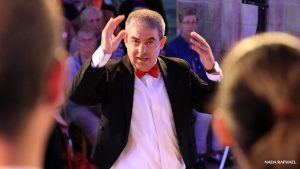 Barkev Taslakian (Lebanon)
Barkev Taslakian (Lebanon)
Barkev Taslakian found his way to music at a very early age, learning to play several instruments, before discovering choral music and conducting. From 1992-1998 he studied conducting under Harutyun Topikyan and Yervant Yerkanian at the Parsegh Kanatchian Music Academy in Beirut. Barkev is the founder and conductor of all three branches of the Fayha Choir in Tripoli, Beirut and Cairo. Under Taslakian’s direction the Fayha Choir has performed concerts in Lebanon, Armenia, Turkey, Syria, Jordan, Qatar, Cyprus, Nagorni Karabakh, Poland, Tunisia, United Arab Emirates, Egypt, France, Canada, China, Qatar, Kuwait, Bahrain, Sweden, Saudi Arabia, Germany, the Netherlands, Belgium and Greece. In addition to performances abroad, the Fayha Choir has become widely celebrated in the Middle Eastern musical world, winning competitions and performing at prestigious events in Lebanon and around the region. Barkev is the Director of several musical groups for children and young refugees in Lebanon, working in co-operation with local and international organisations that support the social, educational and psychological lives of child refugees and immigrants.
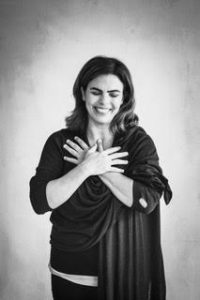 Shireen Abu-Khader (Jordan/Canada)
Shireen Abu-Khader (Jordan/Canada)
Dr. Shireen Abu-Khader is a Palestinian-Jordanian Composer and Educator with degrees in Music Education and Choral Conducting from the University of Toronto, the University of Southern California, and Oberlin Conservatory. After working with the National Conservatory of Music in Palestine from 1998 to 2000, Shireen returned to Jordan and in 2002 founded Dozan wa Awtar Music Establishment, which has been an important venture in her personal development as well as for the evolution of choral music in Jordan. Her album, “Introducing Dozan”, was released in 2008. Shireen has arranged numerous traditional Arabic songs for multiple voices, as well as composing new Arabic works for choirs. She is active in a range of choral and musical activities in Jordan, the West Bank, the United States and Canada. She maintains a busy conducting schedule, and has served as a guest speaker in regional and international conferences. Currently based in Toronto, Shireen composes and collaborates with performers to disseminate music from her native region. She has recently evolved her company into Dozan World which aims to spread the music of the Arab world to the international community through sheet music publishing.
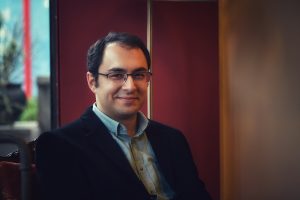 Burak Onur Erdem (Turkey)
Burak Onur Erdem (Turkey)
Dr. Burak Onur Erdem has been a member of the IFCM Board since 2018. He studied music theory and conducting at Istanbul Technical University Center for Advanced Studies in Music, and went on to receive a PhD. His postgraduate studies were with Prof. Johannes Prinz in Kunstuniversität Graz, Austria. Burak founded the Choral Culture Association in Istanbul as a platform for Turkish choral music to innovate and develop. He was elected to the Board and the Music Commission of European Choral Association – Europa Cantat (ECA-EC) in 2015. He was awarded ‘The Best Young Conductor’s Prize’ in the 38th International Varna Choral Competition and he was a judge in the 66th International Arezzo Choral Competition. Currently he is the chair of the Music Commission of Leading Voices 2022 – European Days for Vocal and Choral Leaders – in Utrecht. He is Founder and Conductor of Rezonans, and has received many international awards with the choir. He conducted Istanbul European Choir from 2013 to 2016. He has been working with the Turkish State Choir since 2013 and was appointed its principal conductor in 2017.
 Missak Baghboudarian (Syria)
Missak Baghboudarian (Syria)
Born in Damascus, Missak Baghboudarian has been Conductor of the Syrian National Symphony Orchestra (SNSO) since 2003. He made his debut with the SNSO in 1994. After building up his conducting experience in Syria, Missak studied conducting in Italy from 1997 to 2002 under Julius Kalmar. In addition to his studies, he has taken part in masterclasses with the likes of H. Handt, D. Pascu, M. Beck, Carl St. Clair, Jorma Panula, and Riccardo Muti. Missak has considerable experience conducting international orchestras, as well as choirs, both in Syria and abroad. Missak has been Conductor of the Chamber Choir of the High Institute of Music of Damascus since 2014. Over the course of his career he has had the honour of conducting a number of world premieres by contemporary composers. In 2010 he received the award of Commander of the Ordine della Stella della Solidarietà Italiana (Order of the Star of Italian Solidarity) from the President of Italy for his efforts and achievements in increasing musical cooperation between Syria and Italy.
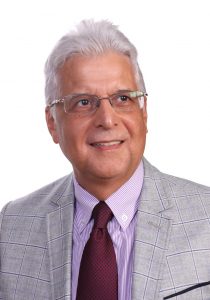 Edward Torikian (Lebanon)
Edward Torikian (Lebanon)
Dr. Edward Torikian, a Lebanese citizen of Armenian origin, is the Head of Higher and Specialised Music Education Programmes in the Faculty of Arts & Sciences at the Holy Spirit University of Kaslik (USEK), a position he has held since 1990. Edward has many years’ experience in choral directing and arranging, and teaching composition. His understanding of both Western and Middle Eastern music traditions has allowed him to produce polyphonic choral arrangements of more than one hundred and fifteen Arabic songs, while simultaneously preserving the Arabic scales and micro tones that are so fundamental to the genre. In addition, he has arranged many Western, Armenian and Syriac songs. Many of his Arabic arrangements were first performed by the Fayha Choir, then by many choirs in the Arab world and the USA where Earthsongs Editing House printed two of his arrangements. He is regularly invited to lecture about his works and arranging techniques in Europe, USA, Egypt, and, of course, in Lebanon.
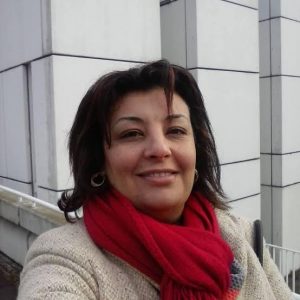 Nahla Mattar (Egypt)
Nahla Mattar (Egypt)
Dr. Nahla Mattar is an Egyptian composer and Professor at Helwan University, Cairo. She is the former Director of Umm Kulthum Museum, Egyptian Ministry of Culture. She was a member of the Egyptian Music Committee, has held a seat on the Supreme Council of Culture, and has presented and published her research internationally. Nahla received her Doctorate of Musical Arts in Composition from Arizona State University. Among her academic projects was the compilation and editing of the First Contemporary Music Biennale, Alexandrina Bibliotheca. She was also the co-ordinator of the 1st International Conference on Music Education in Egypt. Nahla won second prize in the International Women Composers Competition, Unna Library, Germany, for her piece Three. Xenia Contemporary Ensemble commissioned her to compose A River Inside Us Running, premiered in the Egyptian Museum, Turin. In 2021 her orchestral piece Al Ain was performed by the Norwegian Radio Orchestra with Miguel Harth Bedoya and was published by Naxos. Nahla recently enjoyed the world premiere of her Song Cycle of Egyptian Arabic Poems in the Royal Opera House in London, as part of Engender Festival, with Camille Maalawy. For musical settings of Arabic text, be it classical or colloquial, Nahla uses pronunciation and multiple meanings of words to inspire a rich and layered musical experience.
 Milad Omranloo (Iran)
Milad Omranloo (Iran)
Milad Omranloo is an Iranian choral and orchestral conductor, composer, and percussionist. He received his Bachelor’s from Sooreh University, Tehran, and his Masters of Arts degree in Composition from the Art University of Tehran. During his early music career, he was a Timpanist and Head of Percussion for the Tehran Symphony Orchestra. However, his interests shifted to include conducting. After studying under the likes of Ali Rahbari, Loris Tjeknavorian, Iraj Sahbai and Erol Erdinc, he successfully transitioned his career to the podium. He has also participated in choral conducting masterclasses in several countries such as the Netherlands, Norway and the United States with instructors Andre de Quadros, Thomas Caplin, Jos Van Veldholfen and Michael Glasner. In addition to conducting, Milad has received international recognition for his compositions, with his works being performed in Iran and abroad. His collaborations with international musicians, composers and conductors have allowed him to extend the reach of his own work and to introduce new influences into Iranian musical practices. Milad is the founder and conductor of the Tehran Vocal Ensemble. Founded in 2006, the Tehran Vocal Ensemble has been a trailblazer, performing widely in Iran, as well as at international festivals in South Korea, Spain, Italy, China, Latvia, Russia and the United Arab Emirates. Milad went on to establish Tonal Choir in 2015, which has also won various titles in international festivals in Sri Lanka and Italy.
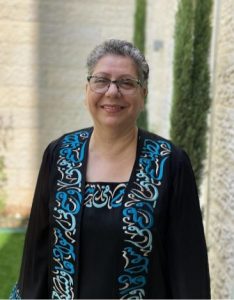 Hania Soudah (Palestine)
Hania Soudah (Palestine)
Mrs. Hania Soudah-Sabbara is the Director of the Rosary Music School in Beit Hanina, Jerusalem. After earning her Bachelor’s Degree in Music Education, she undertook a career as a Music Educator, networking with a number of local and international academies of music to create integrated and enriched music programmes for students. Hania is one of the pioneers in establishing and conducting choirs in her community. She has accompanied and mentored a number of students who went on to earn higher degrees and pursue careers in music performance and in education, and in doing so has produced a vibrant legacy of music and culture in the Palestinian community. She has served on a number of committees that work on creating a music curriculum for schools and academies, with a focus on inclusivity. She believes in the necessity to make music accessible to all as an integral part of each student’s personal development and as a critical component in preserving the diverse cultural heritage of humanity. With thanks to the outstanding Regional Advisory Team presented here, working together with the Qatari hosts and Artistic Committee, the WSCM 2023-24 promises a beautifully curated presentation of the very best choral music and speakers to be found in the Arab musical world today. The WSCM organisers welcome this team to the project and are excited to incorporate their contributions into the WSCM 2023-24. Whether historic or contemporary, choral music’s horizons are ever shifting and ever evolving. This opportunity to share and expand the horizons for all of us is extremely exciting.
Edited by Bethany Farr, UK